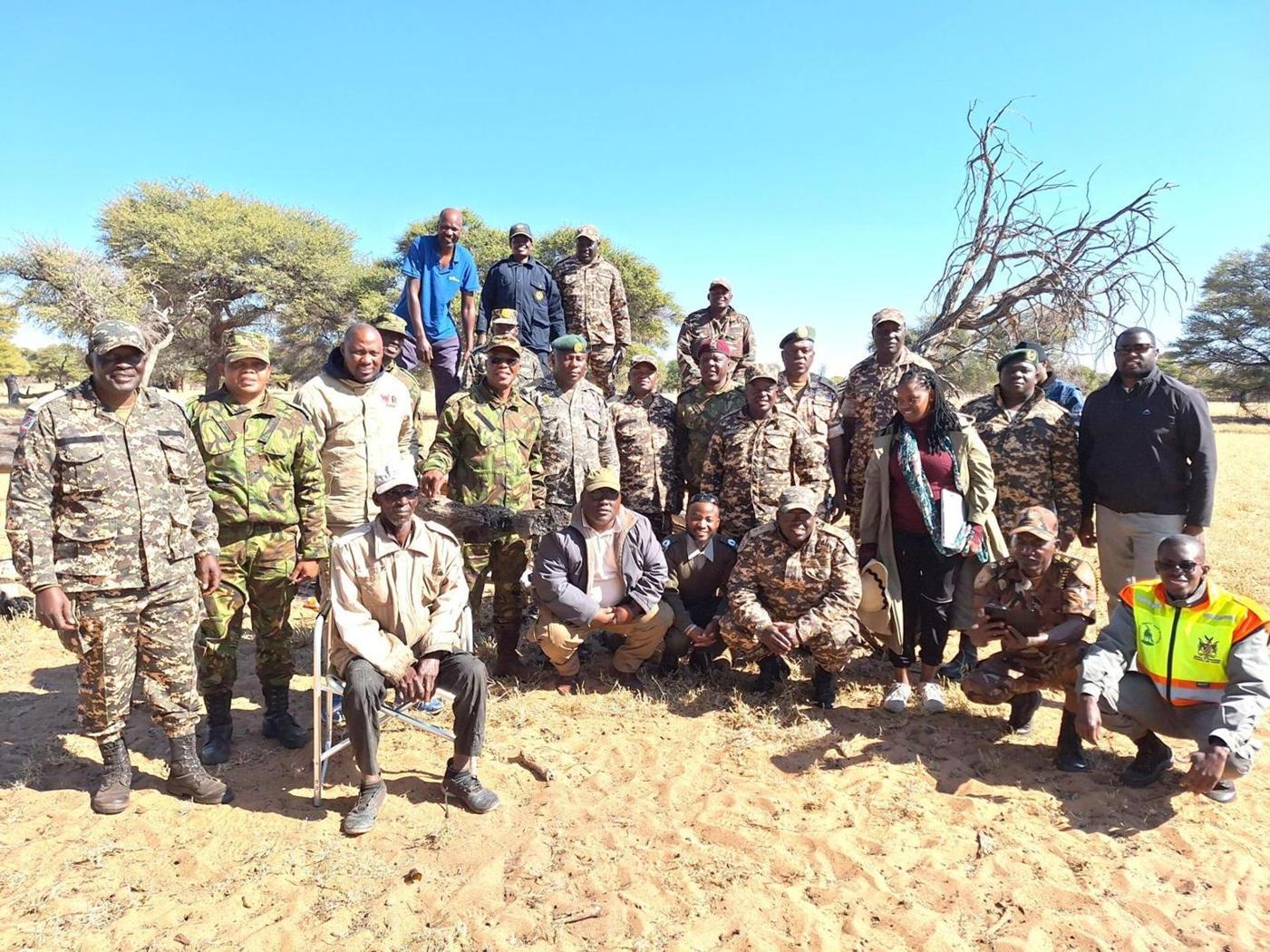Africa-Press – Namibia. The second phase of the civil and military joint sensitisation campaign between the Namibian Defence Force and Botswana Defence Force in collaboration with offices, ministries and agencies, has come to an end, recording a resounding success. It concluded over the weekend.
The campaign, under the theme: Peaceful Borders, Thriving Communities, emanates from Decision 71, which is one of several decisions taken during the Botswana/Namibia bi-national commission held in Gaborone in September 2022.
It is in line with the fulfilment of the African Union Border Management Programme, whose objective is to foster good relations amongst the African States that share borders by amicably agreeing on the mode of jointly managing their borders.
According to Lieutenant Colonel Messag Hangula, the campaign has made positive progress in fostering civilian trust and enhancing civil military cooperation in targeted areas. He said the joint civil and military cooperation sensitisation campaign supports national development by laying the foundation for peace, empowering communities and enhance regional cooperation.
Hangula said the campaign shifts the role of the military from force to being a development partner, linking the gap between civilian entities and the government.
The CIMIC plan focuses on sensitising communities living along the common border and fosters mutual understanding on the importance of peaceful co-existence and good neighbourliness with emphasis on preserving unity and cooperation for the betterment of the shared future.
The initiative strives to ensure that the people living on both sides of the common border enjoy harmonious relations in a peaceful and stable environment, as well as to reassure a commitment to preserving the safety and security of the territories. The plan also strives to build bridges of understanding and compassion among the diverse population.
The campaign addressed persistent cross border crimes such as illegal border crossing, poaching, smuggling of firearms, smuggling of illicit goods, and beneficiation from conservation, among others.
One of the concerns raised by the communities in targeted areas is that the international and veterinary fences are damaged and easily give access, especially to criminals and livestock to wander into and from Botswana.
They cite that the process of reporting livestock that has entered Botswana to the relevant authorities, retrieving and facilitating the return of such livestock is lengthy and barely bears fruits, thus, they are forced to take matters in their own hands by crossing at ungazetted entry points to retrieve their livestock while they are near and before they are stolen.
The communities are, however, calling on the relevant authorities to ensure an increased police visibility along the border by conducting regular patrols, claiming that such practices will contribute to the reduction of border crimes.
For More News And Analysis About Namibia Follow Africa-Press






